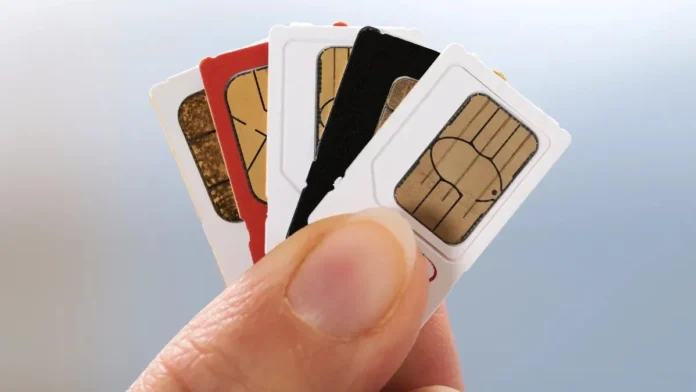Fake news has become one of the biggest challenges in today’s digital world. In an assertive move, the federal government has blocked 80,000 mobile SIMs suspected of being used for spreading fake news, according to Parliamentary Secretary for Cabinet Division Sajid Mehdi. This announcement was made during a National Assembly session, reflecting the government’s commitment to curbing misinformation and safeguarding the public.
Why Did the Government Take This Action?
Fake news can have devastating consequences, from inciting panic to damaging reputations. In Pakistan, social media platforms have seen a surge in unverified and misleading content, prompting the government to take strict measures. The blocked SIMs were reportedly being used to propagate fake news through various digital channels. This action is part of a larger strategy to address the growing threat posed by misinformation.
Key Measures Taken by the Government
To tackle this issue effectively, the government has implemented several initiatives:
1. Formation of a Joint Task Force
A joint task force was established to investigate and combat fake news. The task force has already submitted its report to Prime Minister Shehbaz Sharif, outlining recommendations to strengthen regulatory frameworks and enforcement mechanisms.
2. Proposing Amendments to PECA, 2016
Sajid Mehdi emphasized the need for amendments in the Prevention of Electronic Crimes Act (PECA), 2016. These changes aim to expedite trials and introduce stricter penalties for those involved in spreading false information. By closing legal loopholes, the government hopes to deter individuals from engaging in such activities.
3. Monitoring Virtual Private Networks (VPNs)
The government has initiated the registration of Virtual Private Networks (VPNs) to monitor online activities more effectively. While VPNs are often used to protect privacy, they can also be exploited for malicious purposes. This measure seeks to strike a balance between ensuring security and maintaining oversight.
4. Launching Public Awareness Campaigns
Recognizing the importance of public education, an awareness campaign has been rolled out. It aims to inform citizens about the risks of sharing unverified information and the potential consequences of spreading fake news.
Impact on Citizens and Society
Blocking mobile SIMs is a significant step, but it raises important questions about its impact on citizens. Many people rely on their mobile numbers for daily activities, including communication and financial transactions. Ensuring that innocent individuals are not affected by such measures is crucial.
At the same time, these actions send a clear message: spreading fake news will not be tolerated. By taking a firm stance, the government hopes to foster a more responsible digital environment.
Related Post
- Drought Alert Issued in Pakistan: Agriculture and Livelihoods Under Threat
- Power Sector Faces Rs281 Billion Loss in 2023-24: NEPRA Report
- Gold Rates in Pakistan Surge Amid Global Market Trends
What Does This Mean for the Future?
The steps taken by the government indicate a long-term commitment to fighting fake news. By combining technological solutions, legal reforms, and public awareness, the authorities are creating a multi-pronged approach to tackle the issue.
Potential Outcomes Include:
- Increased accountability: Stricter laws and monitoring mechanisms may discourage individuals from creating or sharing fake news.
- Improved trust in information: Reducing the prevalence of misinformation can help restore public confidence in news sources.
- Safer digital spaces: Monitoring tools like VPN registration can make online platforms less susceptible to misuse.
Criticism and Challenges
While these measures have been largely welcomed, they are not without criticism. Privacy advocates argue that increased surveillance could infringe on individual rights. Others worry about the misuse of laws to suppress dissent or target political opponents.
To address these concerns, the government must ensure transparency and accountability in its actions. Striking the right balance between combating fake news and protecting freedoms will be key to the success of these initiatives.
Conclusion
The government’s decision to block 80,000 mobile SIMs underscores the seriousness of the fight against fake news in Pakistan. By taking decisive steps like forming task forces, amending laws, and launching awareness campaigns, the authorities are working to curb the spread of misinformation.
However, the journey ahead is complex. Collaborative efforts between the government, technology platforms, and the public will be essential to creating a safer, more reliable digital landscape. As citizens, it’s our responsibility to verify information before sharing it and contribute to the fight against fake news.
FAQs
1. Why were 80,000 SIMs blocked?
The SIMs were blocked because they were suspected of being used to spread fake news, a growing issue that the government is working to address.
2. What changes are being proposed to PECA, 2016?
The government is considering amendments to expedite trials and enforce stricter penalties for spreading false information under the Prevention of Electronic Crimes Act.
3. How will VPN registration help?
Registering VPNs allows the government to monitor online activities more effectively, reducing the misuse of these networks for spreading fake news.
4. Are there any downsides to these measures?
Some critics argue that increased monitoring could infringe on privacy rights or be misused for political purposes, making transparency essential.
5. What can citizens do to combat fake news?
Citizens can verify information from credible sources before sharing it and participate in awareness campaigns to understand the consequences of spreading false information.



